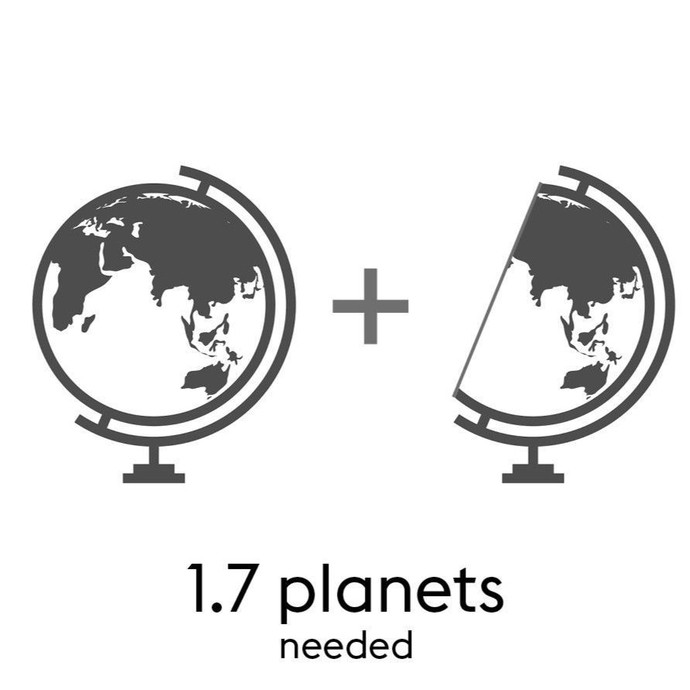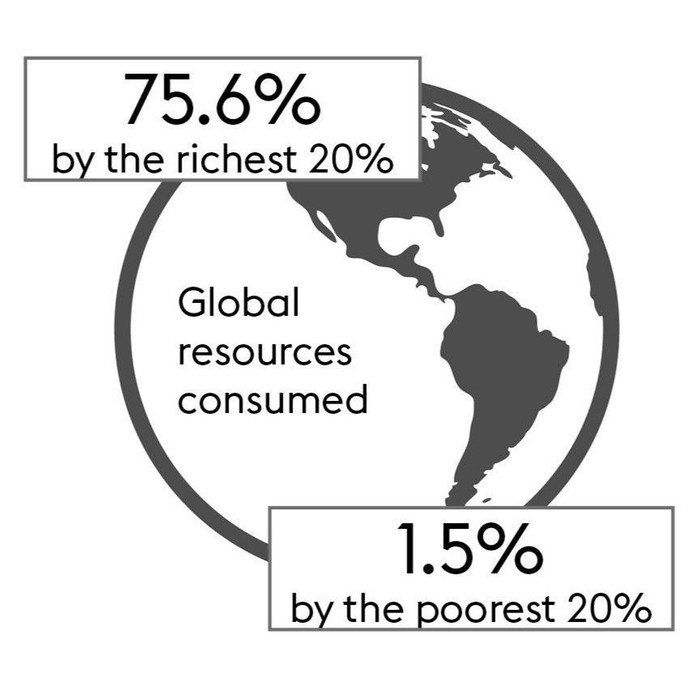A: Why is everyone talking about sustainability?
Why is this such a hot topic of conversation?
It’s never fun to start with doom and gloom, but there are times you just cannot avoid it – and this is one of them.
Climate change, environmental issues such as wildlife and biodiversity loss, and social inequality are all now sadly regular topics of conversation. Different groups are now starting to share their concerns - everyone from school children worried for their future to farmers concerned for their livelihoods to financial markets looking to mitigate risks. It seems like more and more people everyday are talking about sustainability.
So, without getting too overwhelmed, let’s review some of the data and background to this complex subject.
Gilding quote
Infinite growth on a planet with finite resources is unsustainable. We are living beyond our means.
Exponential growth in population
The earth has entered a new age (often called the Anthropocene) in which humans have become the dominant influence on our environment and climate.
Since the mid 20th century, the world has experienced unprecedented population growth (increasing from just 2.7 billion in 1955 to nearly 8 billion in 2023). Add this to advances in industry, infrastructure and technology and you get not only unprecedented consumption but increased depletion of many of our natural resources.
This rapid growth is known as ‘The Great Acceleration’.
Overconsumption
Let’s face it, we have become pretty greedy. We are used to getting what we want, when we want it - in a way that would be very alien to past generations.
Here are just a few stats to highlight the impact we’re having on our natural resources.
|
|
|
|
VisitBritain/VisitEngland

|
|
|
|
VisitBritain/VisitEngland

Financial inequality
Has everybody on the planet benefited from The Great Acceleration? Not really. It has put extreme pressures on our social foundations, and not in a fair and equitable way.
|
|
|
VisitBritain/VisitEngland

Big Picture STC
Stop. Think. Challenge.
The data is pretty shocking, isn't it? What are your personal views on the issues above and what conversations are you having?







